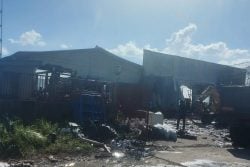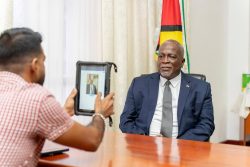ISLAMABAD, (Reuters) – Pakistan’s relationship with the United States, and its pivotal role in Afghanistan, is unlikely to be changed by leaked reports about its support for the Taliban, and the ensuing uproar they caused at home and in Washington.
Published by the anti-war website WikiLeaks, the almost 77,000 classified U.S. military reports only tangentially deal with Pakistan and the involvement of its Inter-Services Intelligence (ISI) agency in the nine-year Afghan insurgency.
The documents detail allegations that U.S. forces sought to cover up civilian deaths as well as U.S. concern that Pakistan secretly aided Taliban militants even as it took billions of dollars in U.S. aid.
“There hasn’t been any strong reaction from the U.S. administration towards Pakistan,” said Rasul Bakhsh Rais, a political analyst at Lahore University of Management Sciences.
“Rather, they are saying that it is unfortunate that this has been leaked, it is about the past. It has not really portrayed the current situation and nature of the relationship between Pakistan and the United States.”
The Obama administration sees nuclear-armed Pakistan as a key player in the struggle against militant Islamist groups within its borders and also in neighbouring Afghanistan, especially as it sets the stage to start withdrawing troops from there by 2011.
Pakistan is seen as essential to convincing some Taliban factions to end their battle in Afghanistan, a major issue in U.S. politics as President Barack Obama sends 30,000 more soldiers into the battle to break the Taliban insurgency.
While U.S. officials have long been wary about the role Pakistan is playing in Afghanistan, and believe it could do more to fight its own homegrown Taliban, they stressed the leaked documents would have no effect on ties.
Shortly after the documents were made public, the U.S. embassy in Islamabad on Monday issued a statement by National Security Adviser James Jones pledging support for Pakistan.
“These irresponsible leaks will not impact our ongoing commitment to deepen our partnerships with Afghanistan and Pakistan; to defeat our common enemies; and to support the aspirations of the Afghan and Pakistani people,” Jones said.
But in Pakistan, the leaks are seen by many in the government, military and the media as part of a campaign to undermine their strategic position in the region at a time when relations with the United States are improving.
“They (the people) think the U.S. does not trust us,” said Talat Masood, a retired general and now a defence analyst.
“They do not differentiate between an official policy and a leak. They think all leaks are deliberate with malicious intent.”
This places the Pakistani government and the influential military leadership in an awkward position as they struggle to defend their relationship with the United States to a public that is among the most anti-American in the world.
“The Islamic parties and the extreme political right in Pakistan already view the U.S. as a major threat to Pakistan. They don’t view the Taliban as a threat,” said Dr. Hasan-Askari Rizvi, a political analyst in Lahore.
“Now these reports have given them a lot of ammunition.”
Among the documents were unverified allegations that Pakistan allowed representatives of the ISI to meet directly with the Taliban to organise militant groups fighting U.S. soldiers.
The military reports also detail efforts by ISI officers to run networks of suicide bombers in Afghanistan. They allege that the ISI may have been part of a Taliban plot to assassinate Afghan President Hamid Karzai.
“These allegations are not new,” said Masood. “But the intensity and the volume and the timing of the leaks and the fact that Pakistan and U.S. relations had improved and were on the ascending curve, I think, is unfortunate.”
“There is in the U.S. great dissatisfaction toward Pakistan’s policies toward the militants,” he added. “They don’t know how to work with each other, and they keep blaming each other. It doesn’t auger well for the U.S.-Pakistan relationship for these stories to come out so frequently.”
Pakistan has longstanding ties to Afghan militant groups. It managed and propped them up — funded by American and Saudi cash — during the war against the Soviet occupation in the 1980s and was one of only three countries to recognise the Taliban government when it came to power in the 1990s.
Despite official statements that Pakistan broke off contact with the Afghan Taliban after the Sept. 11, 2001 attacks, senior Pakistani intelligence officials have said they’ve maintained some level of contact, if only to monitor the leadership council, which is widely believed by analysts to be hiding in Pakistan.





